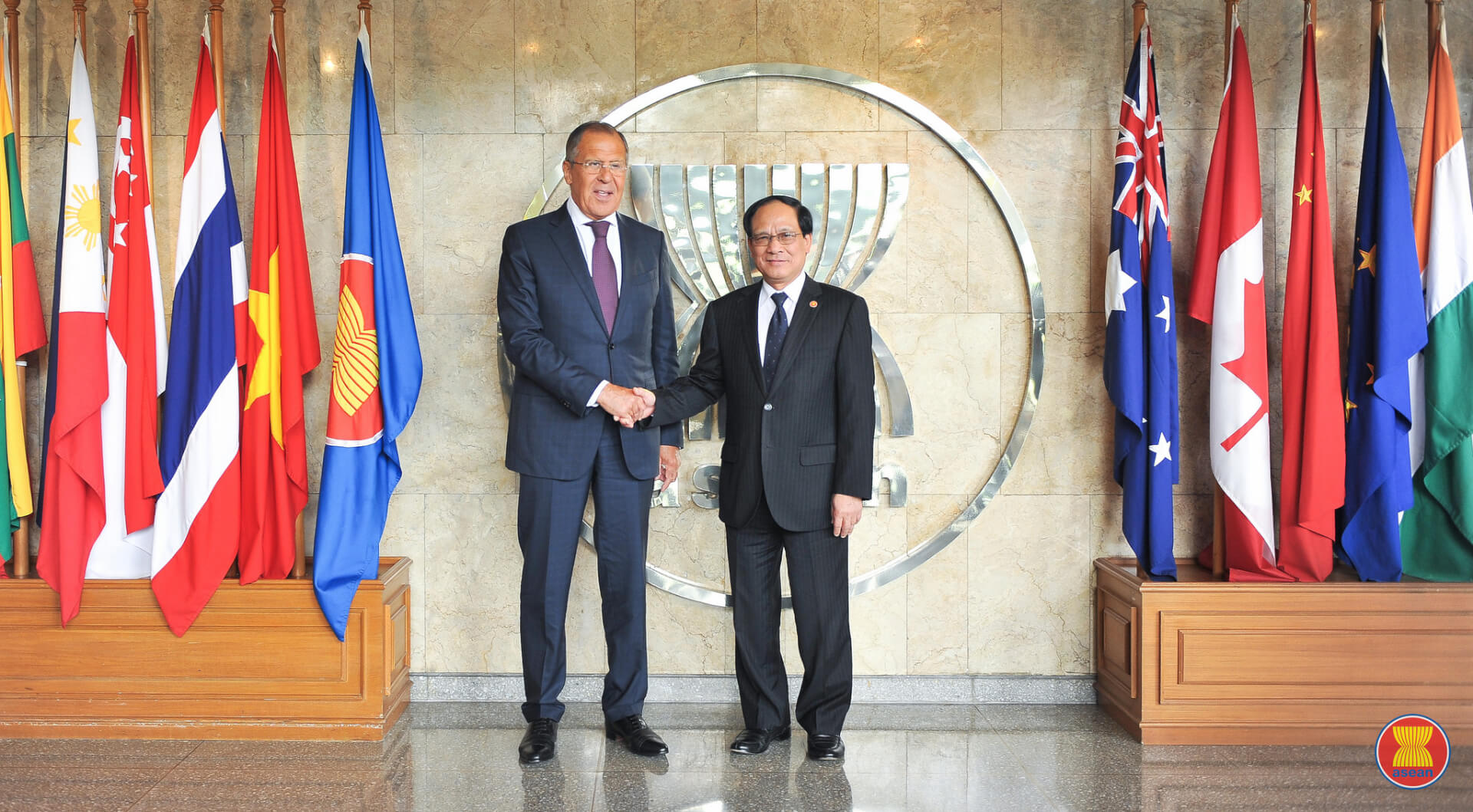During a four-day visit to the Indonesian capital, Jakarta, Russian Foreign Minister (FM) Sergei Lavrov held talks with his Indonesian counterpart Retno Marsudi and extended his country’s support to the Association of Southeast Asian Nations (ASEAN) ’s Five Point Consensus to resolve the political crisis in Myanmar.
“In our contacts with Myanmar leaders, military leaders, we promote the position of ASEAN which should be, in our view, considered as a basis for resolving this crisis and bring the situation back to normalcy,” Reuters quoted the Russian diplomat as saying. “We reiterated our strong support for the ASEAN’s five principles,” Lavrov added. The agency also mentioned Indonesian FM Retno Marsudi as saying that Lavrov is expected to co-chair virtual talks with other ASEAN counterparts during his visit. In addition, Marsudi reemphasised the importance of the five-point consensus. Al Jazeera reported that Marsudi said that the consensus “requires the commitment of Myanmar’s military to cooperate with other ASEAN member countries.”
In a special summit in April, ASEAN leaders and Myanmar’s Commander-in-Chief, Min Aung Hlaing, reached the Five Point Consensus, which included an immediate cessation of violence and the appointment of an ASEAN envoy to facilitate dialogue between the military regime and the bloc to return to a path of peace and democracy. In this regard, the leaders also pledged “adherence to the rule of law, good governance, the principles of democracy and constitutional government, respect for fundamental freedoms, and the promotion and protection of human rights.” However, Myanmar is yet to take any action on the matter.
The latest development is a digression from Moscow’s earlier stance on Myanmar. Last month, Myanmar’s junta leader, Senior General Min Aung Hlaing, flew to Moscow to attend the Moscow Conference for International Security and meet Nikolai Patrushev, Russia’s Security Council secretary. MRTV reported that Min Aung Hlaing and Patrushev discussed furthering security cooperation and agreed to maintain “a good relationship” between their militaries.
Prior to the meeting, Russia supported and shielded Myanmar against international backlash for its aggressions against democracy. As a permanent member of the 15-member United Nations Security Council (UNSC), Russia is allowed to repeatedly veto or delay resolutions condemning the coup and instituting arms embargoes. Moscow is also motivated by the desire to protect its vested interests in Naypyitaw, since it is the second-largest arms supplier to Myanmar’s military and provides training and university scholarships to thousands of Burmese soldiers. Moreover, Russian representatives regularly attend military parades and diplomatic events in Myanmar.
The political crisis in Myanmar began after the military announced on February 1 that it was taking over the government for one year. Many high-level politicians, including State Counsellor Aung San Suu Kyi and President Win Myint, have since been placed under house arrest. The coup has been attributed to the failure of the government to act on the military’s claims of voter fraud in the election conducted last November, when the National League for Democracy (NLD) won in a landslide victory with 83% of the votes.
The blatant show of Russian support has encouraged the Burmese military to strengthen its hold on power. In this light, it remains to be seen whether Russia backing ASEAN to solve Myanmar’s crisis is a diplomatic formality.
Russia Endorses ASEAN Five Point Consensus To Resolve Myanmar Crisis
Russian FM Sergei Lavrov said that ASEAN’s Five Point Consensus should form the basis of the resolution of Myanmar’s political crisis.
July 7, 2021

SOURCE: ASEAN
